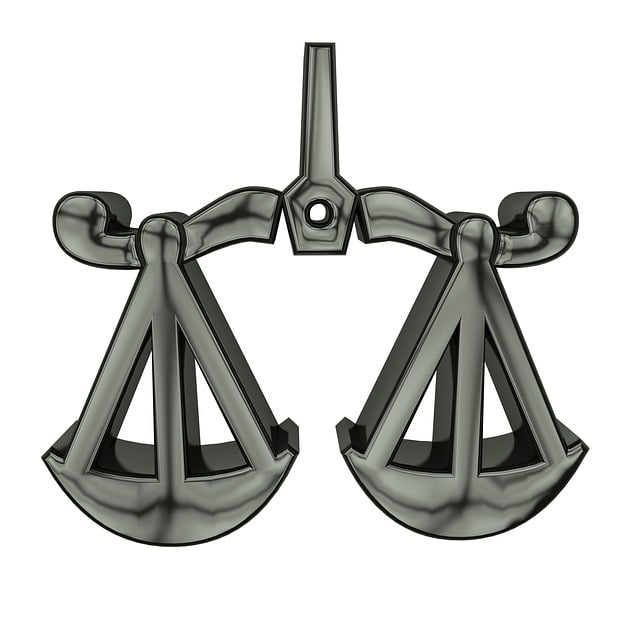Criminal law enforcement, structured hierarchically from local to federal levels, maintains justice and safeguards citizens. Specialized bodies like the FBI or Europol combat transnational crimes and white-collar cases, utilizing legal precedents set through rigorous trials and appeals processes, especially crucial in financial regulation disputes. These precedents, such as defining white-collar crime strategies, balancing regulatory interests, and challenging 'avoiding indictment' tactics, guide investigations and protect rights within a complex financial landscape. The future of Legal Precedents in Financial Regulation Disputes is dynamic, requiring innovative interpretations to address evolving global financial systems and technological advancements.
“Criminal law enforcement stands as a cornerstone of any society, shaping its safety and stability. This article offers an in-depth exploration of this critical domain, delving into its multifaceted role and structured approach. We examine ‘Legal Precedents in Financial Regulation Disputes’, their profound impact on financial crimes, and the evolution of key case studies. By analyzing significant decisions, we gain insights into the future trajectory of financial crime prosecution, highlighting the dynamic nature of legal precedents in this ever-changing landscape.”
- Understanding Criminal Law Enforcement: An Overview of Its Role and Structure
- Legal Precedents in Financial Regulation: The Impact on Disputes
- Key Case Studies: Examining Significant Decisions in Financial Crime
- The Future of Legal Precedents in Financial Regulation Disputes
Understanding Criminal Law Enforcement: An Overview of Its Role and Structure

Criminal law enforcement is a cornerstone of any society, tasked with upholding justice and protecting citizens from crime. It involves a complex web of agencies, each playing a crucial role in investigating, prosecuting, and preventing criminal activities. At its core, this system relies on legal precedents established through rigorous trials and appeals processes, ensuring fairness and consistency across the country. These precedents, often set by landmark cases, guide future decisions, especially in financial regulation disputes where complex transactions blur the lines between legal and illicit activities.
The structure of criminal law enforcement is hierarchical, with local police forces at the forefront, responsible for initial investigations and community policing. Above them are state or provincial agencies that handle more serious offenses and coordinate regional efforts. At the federal level, specialized agencies like the FBI in the US or Europol in Europe tackle transnational crimes and white-collar defenses, ensuring that criminals do not exploit loopholes across respective business jurisdictions. This multi-layered approach leverages resources and expertise to combat diverse criminal activities effectively.
Legal Precedents in Financial Regulation: The Impact on Disputes

Legal Precedents in Financial Regulation Disputes play a pivotal role in shaping the landscape of criminal law enforcement. These precedents, established through landmark cases, serve as guidelines for courts to resolve intricate financial matters often intertwined with criminal activity. By examining past decisions, legal experts can navigate complex scenarios, ensuring fairness and consistency in justice. For instance, a precedent set in a white-collar crime case might outline the criteria for avoiding indictment, offering insights into mitigating factors that benefit accused individuals.
Moreover, these legal precedents reflect the intricate relationship between financial regulations and the broader societal fabric. They consider the interests of philanthropic and political communities, ensuring that regulatory actions are balanced. This nuanced approach is crucial in preventing overreach while maintaining the integrity of financial systems. As such, understanding Legal Precedents in Financial Regulation Disputes is essential for both legal professionals and those within the Philanthropic and Political Communities, as it shapes the strategies employed to safeguard clients’ rights and interests.
Key Case Studies: Examining Significant Decisions in Financial Crime

The realm of criminal law enforcement is deeply intertwined with legal precedents that shape how financial crimes are prosecuted and punished. Key case studies in financial crime reveal significant decisions that have set important legal precedents in terms of legal precedents in financial regulation disputes. These cases not only define what constitutes white-collar crime but also establish guidelines for investigating, prosecuting, and defending against such offenses.
One notable example is the use of avoiding indictment strategies by defendants accused of financial crimes. Philanthropic and political communities have often found themselves caught in these legal quagmires, where the line between legitimate business practices and criminal activity becomes blurred. The outcome of such cases significantly impacts not just the individuals involved but also sets a precedent for how white-collar defense is approached within the broader legal precedents in financial regulation disputes.
The Future of Legal Precedents in Financial Regulation Disputes

The future of legal precedents in financial regulation disputes is an evolving landscape, driven by technological advancements and shifting legal interpretations. As we navigate an increasingly complex global financial system, traditional methods of dispute resolution are being challenged. Legal Precedents, once considered unyielding pillars, must now adapt to the dynamic nature of financial crimes. This evolution is particularly evident in the realm of white-collar and economic crimes, where investigators and enforcers face intricate challenges at every stage of the investigative and enforcement process.
The rise of digital forensics and sophisticated data analytics has introduced a new level of complexity into these disputes. Evidence that once relied on physical documents now encompasses vast datasets and encrypted digital communications. This shift necessitates a reevaluation of legal precedents, pushing courts to consider innovative interpretations and modern approaches. As these changes unfold, it becomes increasingly crucial for legal professionals to stay abreast of developments, ensuring their clients receive the best possible representation in an ever-changing regulatory environment.
Criminal law enforcement plays a pivotal role in maintaining societal order and justice. As seen through key case studies, legal precedents in financial regulation disputes have significantly shaped the approach to financial crime. By understanding these precedents and their impact, we can anticipate the future of financial crime enforcement, ensuring that legal frameworks evolve with the dynamic nature of global markets. This comprehensive review highlights the importance of continuous legal development in addressing emerging challenges in criminal law enforcement.






